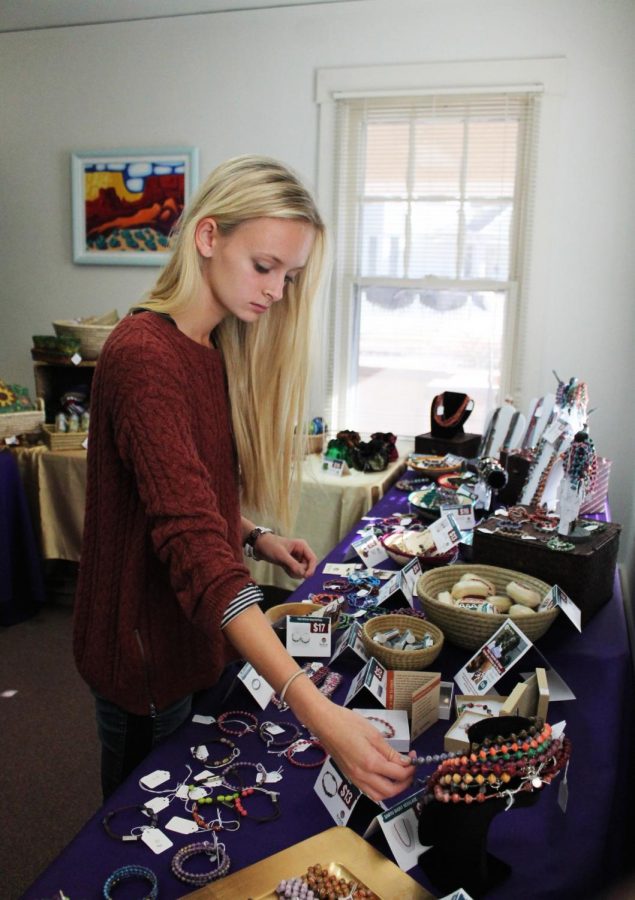UNA Women’s Center supports women of Uganda with Bead for Life Marketplace.
December 4, 2015
The Women’s Center is hosting a marketplace event through Dec. 16 featuring handcrafted jewelry, soaps, lip balms and other items perfect for holiday gift giving.
“You can buy guilt-free holiday presents,” said Coordinator for Women’s Studies Emily Kelley. “You can feel really good because you’re giving somebody something that is handmade, but you’re also giving them something that gives another person on the other side of the world a new chance at a better life.”
Shoppers can purchase items from the Bead for Life marketplace and the Sojourns Fair Trade Market.
Bead for Life supports women in Uganda who are trying to pull themselves and their families out of extreme poverty, Kelley said.
Kelley said some of the Ugandan items for sale include lip balms, earrings, bracelets and necklaces.
Prices range from $4 and up, she said. There are bracelets for less than $15 and earrings as low as $10.
This is the fifth year the center has held the event, she said. In the past four years the center has raised just over $16,000 for the women of Uganda.
The woman of Uganda often take in the children of deceased brothers, uncles and other family members and find supporting their growing family difficult, she said.
“Some of them are trying to raise 10, 12, 15 children on their own,” she said.
Freshman Miranda Lee said she thinks buying items from events like this is a great way to help people in poverty-stricken countries.
“I’ve always been really supportive of women making their own wages,” she said. “I wanted to participate even if it was a small thing like a ring.”
Sojourns owner Melissa Kendrick said people from 57 countries craft the items she brought to the event.
“Fair trade is the opposite of sweat shops,” she said. “That’s the easiest way to explain it. Our artisans are people in developing nations who would normally earn $1 or $2 a day. This is a way for them to work through poverty through their arts and crafts and being paid a fair wage for their work.”
The Sojourns tables hold items like journals, mugs and soaps.
Kendrick said she pays the artisans a 50 percent deposit when she orders the items and the other 50 percent when the item ships, much like any retail business.
“What’s important is the payment to the artisans in the long run,” she said.












